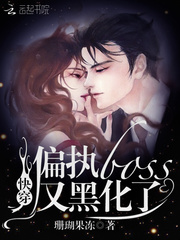CHAPTER VII
您可以在百度里搜索“Now It Can Be Told 艾草文学(www.321553.xyz)”查找最新章节!
CHAPTER VII
The men came home in a queer mood, startling to those who had not watched them “out there,” and to those who welcomed peace with flags. Even before their homecoming, which was delayed week after week, month after month, unless they were lucky young miners out for the victory push and back again quickly, strange things began to happen in France and Flanders, Egypt and Palestine. Men who had been long patient became suddenly impatient. Men who had obeyed all discipline broke into disobedience bordering on mutiny. They elected spokesmen to represent their grievances, like trade-unionists. They “answered back” to their officers in such large bodies, with such threatening anger, that it was impossible to give them “Field Punishment Number One,” or any other number, especially as their battalion officers sympathized mainly with their point of view. They demanded demobilization according to their terms of service, which was for “the duration of the war.” They protested against the gross inequalities of selection by which men of short service were sent home before those who had been out in 1914, 1915, 1916. They demanded justness, fair play, and denounced red tape and official lies. “We want to go home!” was their shout on parade. A serious business, subversive of discipline.
Similar explosions were happening in England. Bodies of men broke camp at Folkestone and other camps, demonstrated before town halls, demanded to speak with mayors, generals, any old fellows who were in authority, and refused to embark for France until they had definite pledges that they would receive demobilization papers without delay. Whitehall, the sacred portals of the War Office, the holy ground of the Horse Guards' Parade, were invaded by bodies of men who had commandeered ambulances and lorries and had made long journeys from their depots. They, too, demanded demobilization. They refused to be drafted out for service to India, Egypt, Archangel, or anywhere. They had “done their bit,” according to their contract. It was for the War Office to fulfil its pledges. “Justice” was the word on their lips, and it was a word which put the wind up (as soldiers say) any staff-officers and officials who had not studied the laws of justice as they concern private soldiers, and who had dealt with them after the armistice and after the peace as they had dealt with them before—as numbers, counters to be shifted here and there according to the needs of the High Command. What was this strange word “justice” on soldiers' lips?... Red tape squirmed and writhed about the business of demobilization. Orders were made, communicated to the men, canceled even at the railway gates. Promises were made and broken. Conscripts were drafted off to India, Egypt, Mesopotamia, Archangel, against their will and contrary to pledge. Men on far fronts, years absent from their wives and homes, were left to stay there, fever-stricken, yearning for home, despairing. And while the old war was not yet cold in its grave we prepared for a new war against Bolshevik Russia, arranging for the spending of more millions, the sacrifice of more boys of ours, not openly, with the consent of the people, but on the sly, with a fine art of camouflage.
The purpose of the new war seemed to many men who had fought for “liberty” an outrage against the “self—determination of peoples” which had been the fundamental promise of the League of Nations, and a blatant hypocrisy on the part of a nation which denied self—government to Ireland. The ostensible object of our intervention in Russia was to liberate the Russian masses from “the bloody tyranny of the Bolsheviks,” but this ardor for the liberty of Russia had not been manifest during the reign of Czardom and grand dukes when there were massacres of mobs in Moscow, bloody Sundays in St. Petersburg, pogroms in Riga, floggings of men and girls in many prisons, and when free speech, liberal ideas, and democratic uprisings had been smashed by Cossack knout and by the torture of Siberian exile.
Anyhow, many people believed that it was none of our business to suppress the Russian Revolution or to punish the leaders of it, and it was suspected by British working-men that the real motive behind our action was not a noble enthusiasm for liberty, but an endeavor to establish a reactionary government in Russia in order to crush a philosophy of life more dangerous to the old order in Europe than high explosives, and to get back the gold that had been poured into Russia by England and France. By a strange paradox of history, French journalists, forgetting their own Revolution, the cruelties of Robespierre and Marat, the September Massacres, the torture of Marie Antoinette in the Tuileries, the guillotining of many fair women of France, and after 1870 the terrors of the Commune, were most horrified by the anarchy in Russia, and most fierce in denunciation of the bloody struggle by which a people made mad by long oppression and infernal tyrannies strove to gain the liberties of life.
Thousands of British soldiers newly come from war in France were sullenly determined that they would not be dragged off to the new adventure. They were not alone. As Lord Rothermere pointed out, a French regiment mutinied on hearing a mere unfounded report that it was being sent to the Black Sea. The United States and Japan were withdrawing. Only a few of our men, disillusioned by the ways of peace, missing the old comradeship of the ranks, restless, purposeless, not happy at home, seeing no prospect of good employment, said: “Hell!... Why not the army again, and Archangel, or any old where?” and volunteered for Mr. Winston Churchill's little war.
After the trouble of demobilization came peace pageants and celebrations and flag-wavings. But all was not right with the spirit of the men who came back. Something was wrong. They put on civilian clothes again, looked to their mothers and wives very much like the young men who had gone to business in the peaceful days before the August of '14. But they had not come back the same men. Something had altered in them. They were subject to queer moods, queer tempers, fits of profound depression alternating with a restless desire for pleasure. Many of them were easily moved to passion when they lost control of themselves. Many were bitter in their speech, violent in opinion, frightening. For some time, while they drew their unemployment pensions, they did not make any effort to get work for the future. They said: “That can wait. I've done my bit. The country can keep me for a while. I helped to save it... Let's go to the 'movies.'” They were listless when not excited by some “show.” Something seemed to have snapped in them; their will-power. A quiet day at home did not appeal to them.
“Are you tired of me?” said the young wife, wistfully. “Aren't you glad to be home?”
“It's a dull sort of life,” said some of them.
The boys, unmarried, hung about street-corners, searched for their pals, formed clubs where they smoked incessantly, and talked in an aimless way.
Then began the search for work. Boys without training looked for jobs with wages high enough to give them a margin for amusement, after the cost of living decently had been reckoned on the scale of high prices, mounting higher and higher. Not so easy as they had expected. The girls were clinging to their jobs, would not let go of the pocket-money which they had spent on frocks. Employers favored girl labor, found it efficient and, on the whole, cheap. Young soldiers who had been very skilled with machine-guns, trench-mortars, hand-grenades, found that they were classed with the ranks of unskilled labor in civil life. That was not good enough. They had fought for their country. They had served England. Now they wanted good jobs with short hours and good wages. They meant to get them. And meanwhile prices were rising in the shops. Suits of clothes, boots, food, anything, were at double and treble the price of pre-war days. The profiteers were rampant. They were out to bleed the men who had been fighting. They were defrauding the public with sheer, undisguised robbery, and the government did nothing to check them. England, they thought, was rotten all through.
Who cared for the men who had risked their lives and bore on their bodies the scars of war? The pensions doled out to blinded soldiers would not keep them alive. The consumptives, the gassed, the paralyzed, were forgotten in institutions where they lay hidden from the public eye. Before the war had been over six months “our heroes,” “our brave boys in the trenches” were without preference in the struggle for existence.
Employers of labor gave them no special consideration. In many offices they were told bluntly (as I know) that they had “wasted” three or four years in the army and could not be of the same value as boys just out of school. The officer class was hardest hit in that way. They had gone straight from the public schools and universities to the army. They had been lieutenants, captains, and majors in the air force, or infantry battalions, or tanks, or trench-mortars, and they had drawn good pay, which was their pocket-money. Now they were at a loose end, hating the idea of office-work, but ready to knuckle down to any kind of decent job with some prospect ahead. What kind of job? What knowledge had they of use in civil life? None. They scanned advertisements, answered likely invitations, were turned down by elderly men who said: “I've had two hundred applications. And none of you young gentlemen from the army are fit to be my office-boy.” They were the same elderly men who had said: “We'll fight to the last ditch. If I had six sons I would sacrifice them all in the cause of liberty and justice.”
Elderly officers who had lost their businesses for their country's sake, who with a noble devotion had given up everything to “do their bit,” paced the streets searching for work, and were shown out of every office where they applied for a post. I know one officer of good family and distinguished service who hawked round a subscription—book to private houses. It took him more courage than he had needed under shell-fire to ring the bell and ask to see “the lady of the house.” He thanked God every time the maid handed back his card and said, “Not at home.” On the first week's work he was four pounds out of pocket... Here and there an elderly officer blew out his brains. Another sucked a rubber tube fastened to the gas-jet... It would have been better if they had fallen on the field of honor.
Where was the nation's gratitude for the men who had fought and died, or fought and lived? Was it for this reward in peace that nearly a million of our men gave up their lives? That question is not my question. It is the question that was asked by millions of men in England in the months that followed the armistice, and it was answered in their own brains by a bitterness and indignation out of which may be lit the fires of the revolutionary spirit.
At street-corners, in tramway cars, in tea-shops where young men talked at the table next to mine I listened to conversations not meant for my ears, which made me hear in imagination and afar off (yet not very far, perhaps) the dreadful rumble of revolution, the violence of mobs led by fanatics. It was the talk, mostly, of demobilized soldiers. They asked one another, “What did we fight for?” and then other questions such as, “Wasn't this a war for liberty?” or, “We fought for the land, didn't we? Then why shouldn't we share the land?” Or, “Why should we be bled white by profiteers?”
They mentioned the government, and then laughed in a scornful way.
“The government,” said one man, “is a conspiracy against the people. All its power is used to protect those who grow fat on big jobs, big trusts, big contracts. It used us to smash the German Empire in order to strengthen and enlarge the British Empire for the sake of those who grab the oil-wells, the gold-fields, the minerals, and the markets of the world.” Now It Can Be Told




